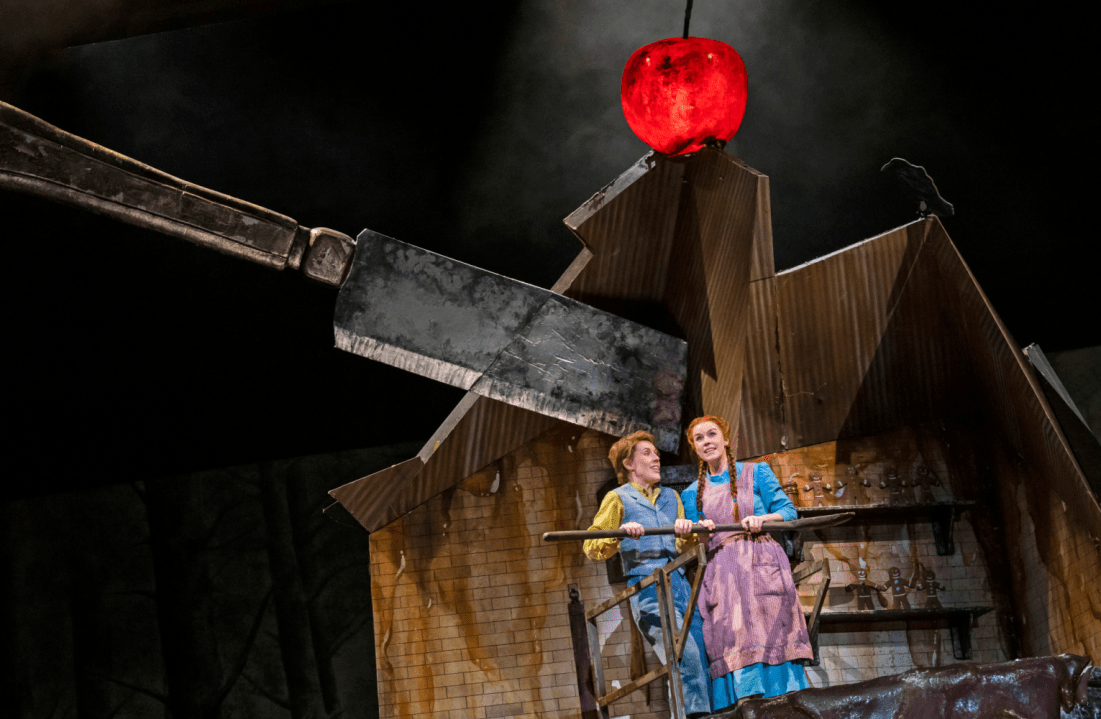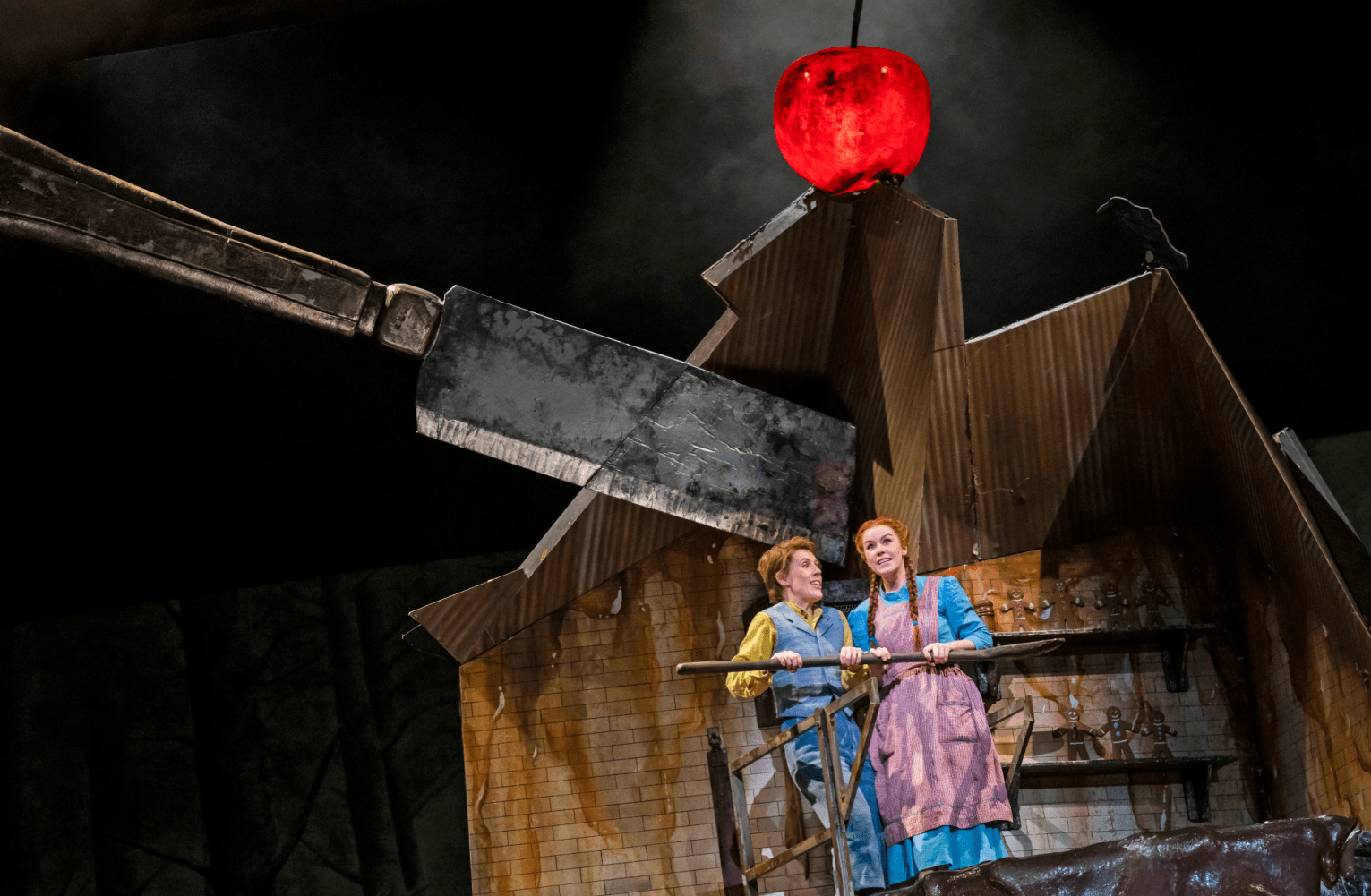Fun fact: Engelbert Humperdinck composed part of Wagner’s Parsifal. Shortly before the première, it was discovered that Wagner’s score didn’t allow time for a crucial scene change. The 27-year-old Humperdinck, then working as Wagner’s assistant, composed a few temporary bars to cover the gap and, rather to his own surprise, found that they met with the Master’s full approval: ‘Why not? It should work!’ It’s worth knowing partly because of the light it throws on the practical, collegial working methods of music’s favourite cartoon supervillain, and partly because it reaffirms the originality of Humperdinck’s own best-known opera, Hansel and Gretel. How many artists could have flown that close to Wagner’s magic fire, and still emerged with their individuality unsinged?
Still, there’s no question that part of the charm of Hansel and Gretel is its tender, light-touch Wagnerism: Siegfried for the pre-teens. Or so I’d lazily thought (in fairness, it’s a perspective endorsed by many of the classic recordings). Anyway, Mark Wigglesworth conducted the recent revival at Covent Garden and, orchestrally at least, it was an opera transformed. Gone was the Valhalla glow of the opening horn chorale; Wigglesworth phrased it sweetly and simply, like the children’s prayer it is. It was a fitting prelude to an evening of sprung rhythms, playful detailing and woody, homespun textures – closer to Bohemia than to Bayreuth, and reclaiming Humperdinck’s masterpiece for the Volksoper tradition, rather than indulging its subsequent reputation as a kindergarten Gesamtkunstwerk.
The central performances, too, were notable for their sensitivity and unselfishness – which is not to say that Rosie Aldridge’s gleeful villainy and sunbeam coloratura as the Witch deserved anything less than the ovation she received. We know that both Anna Stéphany (Hansel) and Anna Devin (Gretel) can sing more opulently than this, but they wrapped their voices closely around their characters, and around Wigglesworth’s buoyant, guileless interpretation. They were spirited, unsentimental and wholly committed to the clarity and colour of Kelley Rourke’s English translation – an unusual departure for the Royal Opera but one that’s going to become more necessary if the Arts Council succeeds in its ambition of destroying the English National Opera. Rourke’s words are sparky and sympathetic, playing up the Englishness (the children fantasise about ‘sticky toffee’) while downgrading (like many recent opera translations) the explicitly Christian elements of the original. That does, at least, echo Antony McDonald’s 2018 staging, in which Hansel and Gretel’s guardian angels are reduced to paper dolls while assorted fairy-tale characters (plus some rather more menacing creatures) are portrayed as a very real presence in the forest. But what a forest! McDonald (who designed as well as directed) gives us a properly Germanic vision of darkening light and towering pines, straight out of Caspar David Friedrich and populated by slow-moving bugs, bats with glowing eyes and the aforementioned fairy-tale figures – sufficient to generate a shiver of delightful terror for all ages. (The Royal Opera sold it as ‘a great family opera’.)
With the second act, though, the tone lurched: the Witch’s cottage was a ringer for the Bates Motel, with blood oozing down its windows. True, we’re told that kids are grisly little brutes who can’t get enough of the macabre. I simply recall that, as an eight-year-old, I would have felt short-changed without a plausibly tooth-rotting gingerbread house. The sudden appearance of the Witch’s captive children didn’t make much sense either. But by that stage in any Hansel and Gretel you’ve either surrendered to the enchantment or you’ve been sitting there for two hours consumed with pure loathing. I fell into the first camp and so, by their reaction, did most of the pre-Christmas crowd.
The RNCM, meanwhile, presented a rare staging of Rimsky-Korsakov’s The Snow Maiden, an opera which sounds like a family friendly seasonal fairy tale but which actually dramatises a pagan fertility rite. The director Jack Furness leaned hard into that angle, with the Russian tribesfolk portrayed as a murderous Midsommar cult led by the hippy psychopath Tsar Byenrendeyi (Jay Broadhurst, clearly enjoying himself).
There was a straw bear, an eerie pink haze, and pregnant silences filled with violent thumping sounds (always good to be reminded that Stravinsky couldn’t have written Le Sacre du printemps without Rimsky’s example). Matthew Kofi Waldren conducted and Bonnie Callaghan – wide-eyed, vibrant and intensely touching – sang luminously in the title role.
Furness is a major talent, and much about this production transcended the obvious lack of budget for scenery and lighting. More frustrating was the decision to cut various sequences, including the score’s single best-known number, the ‘Dance of the Tumblers’. If you know your Rimsky, it was like doing Turandot without ‘Nessun Dorma’. And even if you don’t, it triggered a paradox common to operas which, like The Snow Maiden, are predominantly lyrical. Cuts actually make them feel longer.







Comments